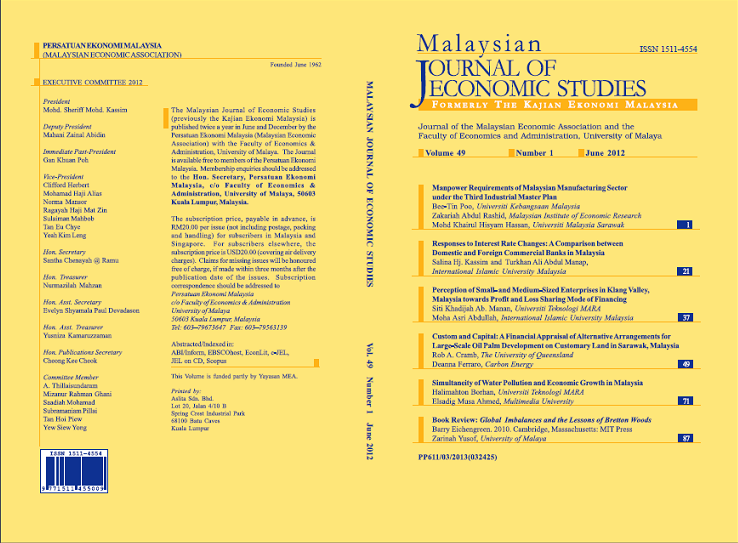Custom and Capital: A Financial Appraisal of Alternative Arrangements for Large-Scale Oil Palm Development on Customary Land in Sarawak, Malaysia
Keywords:
Benefit-cost analysis, joint ventures, Malaysia, managed smallholders, Southeast AsiaAbstract
The oil palm boom in Southeast Asia has increased demand for institutional arrangements facilitating large-scale plantation development on customary lands. A financial model of an oil palm plantation in Sarawak, Malaysia, is used to explore six project types, including managed smallholders, three different joint-venture arrangements, renting, and (for comparison) a private plantation on state land. Benefit-cost analysis is used as the basis for project, private (shareholder), and stakeholder analyses. There is a trade-off between the efficiency and equity outcomes of the alternative arrangements as modelled. While joint venture projects provide higher aggregate net benefits, managed smallholder projects provide more benefits to landholders. When the actual performance of the alternative schemes is taken into account, the managed smallholder approach is superior on both efficiency and equity grounds. The joint venture approach could be improved by paying advance dividends or combining a fixed rent with a share of dividends to reduce the income risk faced by landholders. In all cases, improved management is needed for the schemes to achieve their developmental potential.

